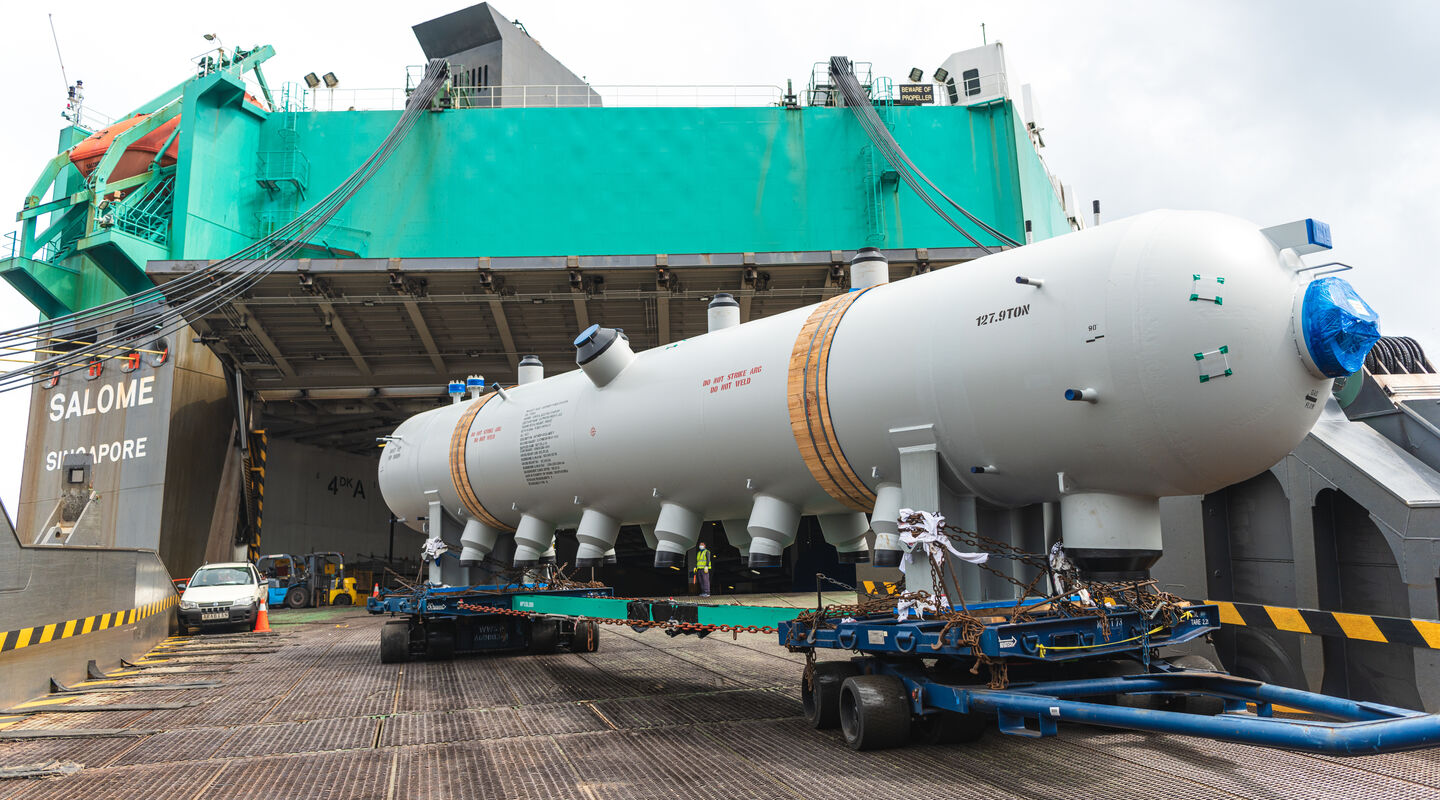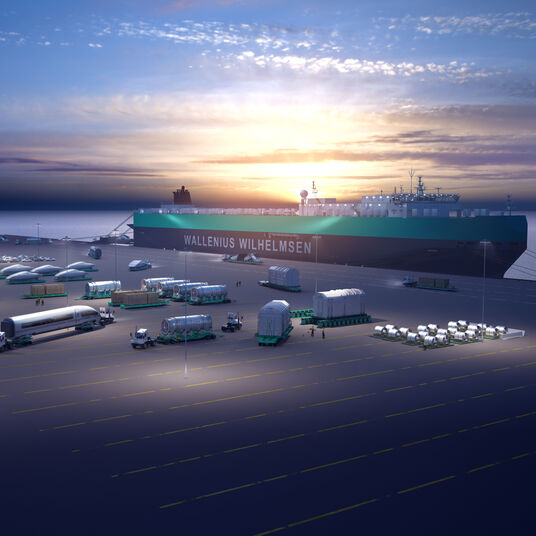5 ways RoRo cuts costs and reduces risk for breakbulk shipments
Combining RoRo vessels capable of carrying a wide range of breakbulk products with liner-style services can reduce your costs and risks when shipping breakbulk. Let’s look at how.

1. Minimal lifting for maximum product protection
One of the main reasons why RoRo reduces risk is because it requires minimal lifting.
Breakbulk products are securely lashed to specialized handling equipment at the terminal before vessel arrival and easily rolled onboard, limiting the need for cargo handling and reducing the risk of damage.
All cargo operations are taken care of long before the vessel is in the port. Our large fleet of handling equipment and technical expertise means we can handle all kinds of breakbulk safely and efficiently.
Our team of breakbulk specialists can also design customized solutions for the most oversized or delicate products, which can be rolled into a warehouse to protect the cargo before loading.
2. Protection from the elements ensures high-quality standards are maintained
RoRo vessel design ensures underdeck stowage of your cargo at all times – a guarantee no other ocean transportation options do.
At sea, products are well protected from variable conditions thanks to advanced heating, ventilation and air conditioning (HVAC) technology, which ensures the temperature and humidity of the interior decks are kept constant for the entire voyage.
Once loaded onto the appropriate vessel deck, the product stays securely lashed to the handling equipment. The combination of direct lashing to the handling equipment and the deck means that the cargo is stable and secure – even through the natural movements of the ocean.
3. Reliable liner services enables cost control
Key to a project’s success is often cost control and cost transparency.
Our RoRo liner service’s reliable schedule that is timetabled months in advance, allows for better planning and supports supply chain predictability, which in turn keeps costs low.
As a liner carrier, we are usually granted prioritized berthing to ensure a reliable and predictable schedule for our customers and terminals.
4. Fixed departure dates reduces storage costs
Fixed departure dates mean there is less need for port warehousing. With fixed schedules, there are no need to consolidate cargo onto one ship, which improves flexibility.
We all know that unforeseen events happen in most supply chains. So, if you so happen to miss the departure of the vessels, it is no problem. It is simply dealt with by taking the next scheduled RoRo vessel.
With RoRo, you ship your breakbulk “as is” which means no need for any additional dismantling costs or associated reassembly costs at destination.
5. Our transshipment network provides global access
Through the use of partner shipping networks, transshipment to ports beyond a RoRo liner service’s regular port calls provides access to even more destinations around the world, helping customers to meet demand in their key markets.
The risk of damage is also reduced during transshipment. While awaiting transfer, your products remain lashed to their handling equipment and can be stored in warehouses if required. Your products can even remain on the handling equipment when connecting to some of our partner carriers.





